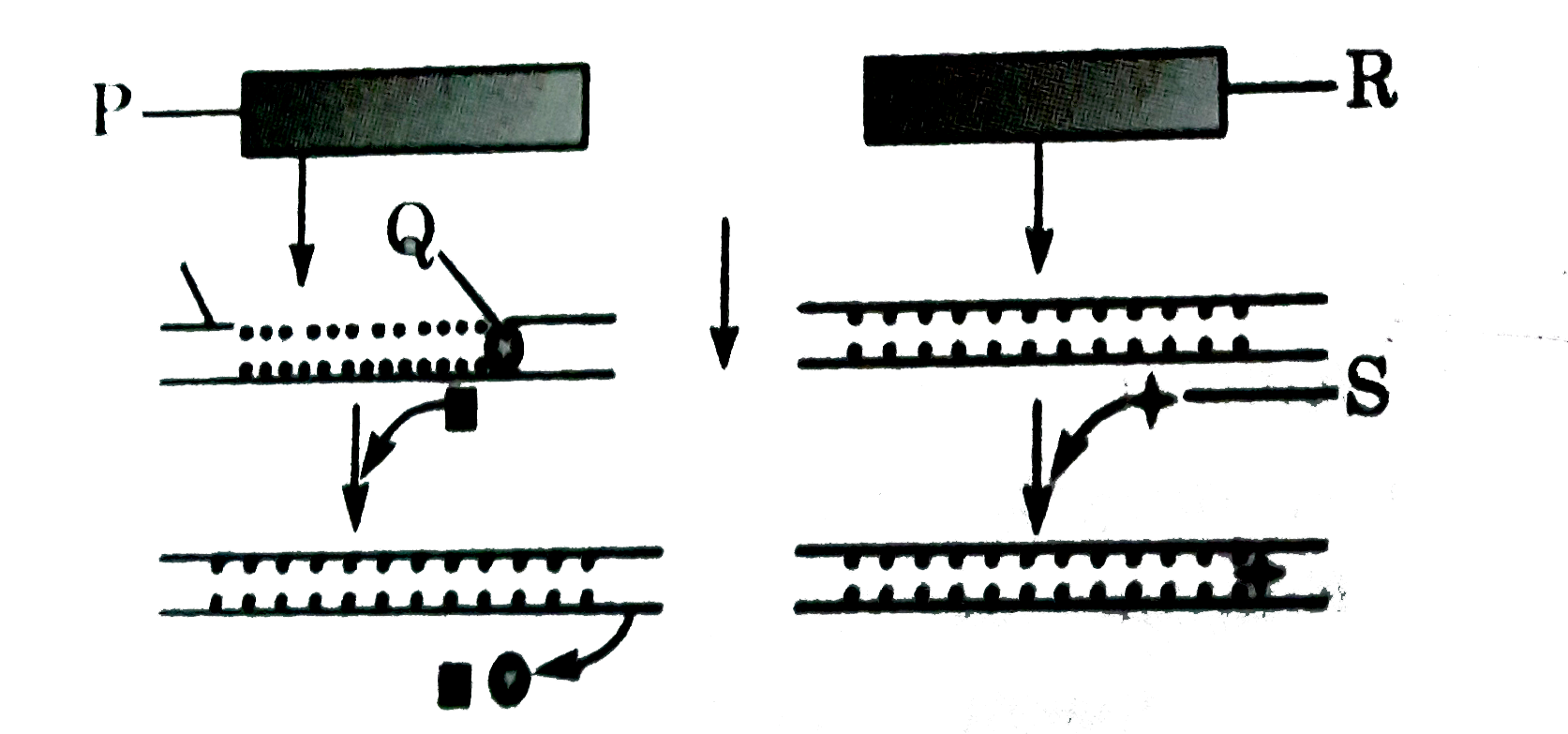Find the number of ways of selecting r objects from p identical thing and q identical things of other type
(i) if p,q<r (ii) ifp,q>r
When p,q<r, we have selection produre as follows :


Similar Questions
Find the number of selections of one or more things from the group of p identical things of one type, q identical things of another type, r identical things of the third type and n different things.
View SolutionFind the number of selections of one or more things from the group of p identical things of one type, q identical things of another type, r identical things of the third type and n different things.
View Solution
Knowledge Check
Identity P,Q,R and S in the diagram
 AP-negative regative, Q-inhibitor,R-effector molecule, S-positive regulationBP-positive regulation, Q-effector molecule, R-inhibitor,S-negative regulationCP-negative regulation, Q-inhibitor, R-positive regulation, S-effector moleculeDP-positive regulative, Q-effector molecule,R-negative regulation, Sinhibitor.
AP-negative regative, Q-inhibitor,R-effector molecule, S-positive regulationBP-positive regulation, Q-effector molecule, R-inhibitor,S-negative regulationCP-negative regulation, Q-inhibitor, R-positive regulation, S-effector moleculeDP-positive regulative, Q-effector molecule,R-negative regulation, Sinhibitor.If r>p>q, the number of different selections of p+q things taking r at a time, where p things are identical and q other things are identical, is
Ap+q−rBp+q−r+1Cr−p−q+1Dnone of these
The number of ways in which p+q things can be divided into two groups containing pandq things respectively is
View SolutionThe number of ways in which p+q things can be divided into two groups containing pandq things respectively is
View SolutionIdentity P,Q,R and S in the diagram

View SolutionThe total number of ways in which a selection(one or more) can be made of p+q+r things of which p are all alike, q all alike, r all alike is (p+1)(q+1)(r+1)−1 II: The number of permutations of 'n' things taken together when 'p' of the things are alike of one kind, 'q' of them alike of a second kind, 'r' of them alike of a third kind and the rest all different is n!p!q!r!3! Which of the above statement is true?
View SolutionStatement 1: If p,q,<r, the number of different selections of p+q things taking r at a time, where p thingks are identical and q other things are identical, is p+q−r+1. Statement 2: If p,q,<r, the number of different selections of p+q things taking r at a time, where p thingks are identical and q other things are identical, is r−1.
View SolutionIf r>p>q, the number of different selections of p+q things taking r at a time, where p things are identical and q other things are identical, is
View Solution
